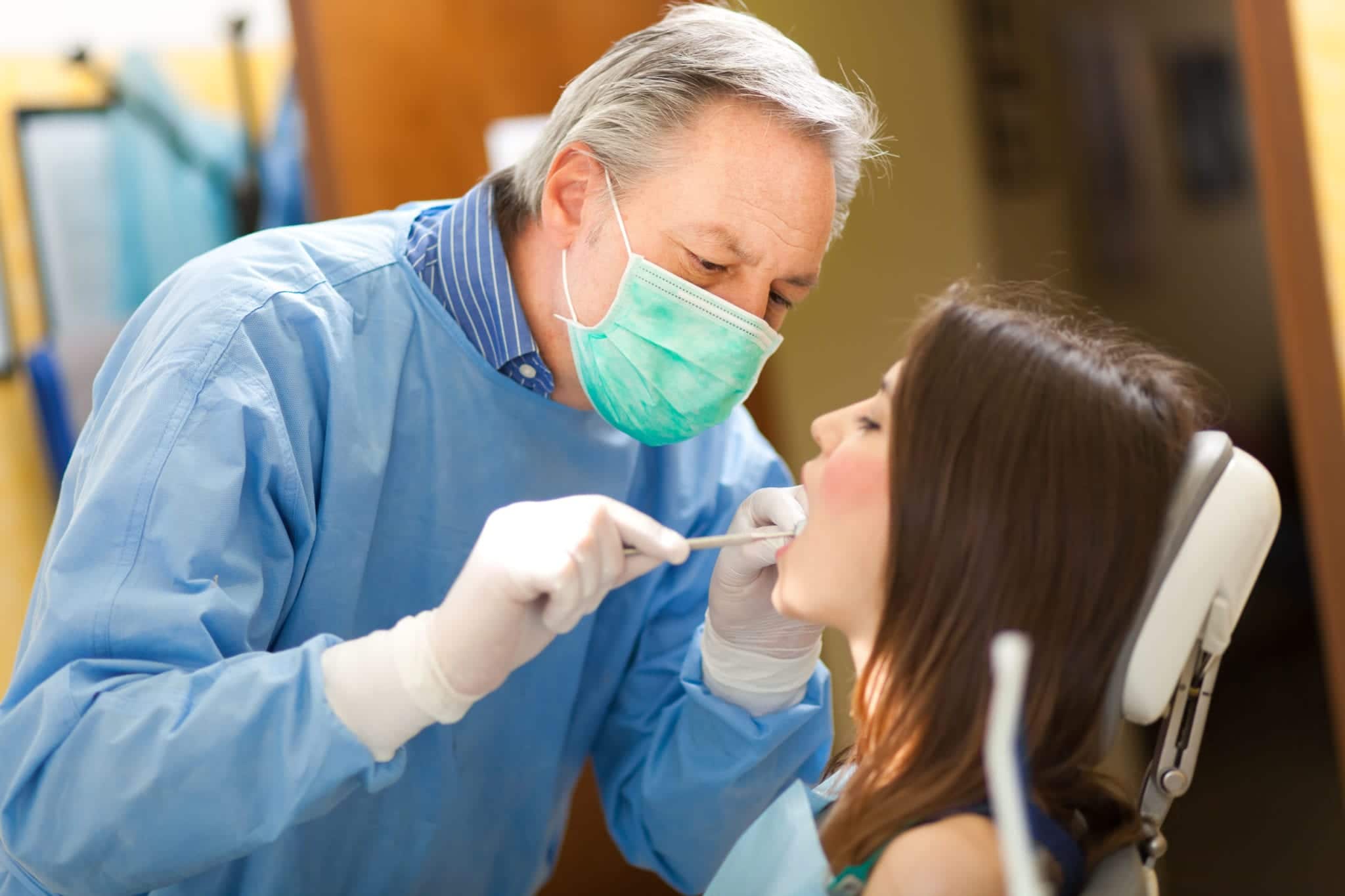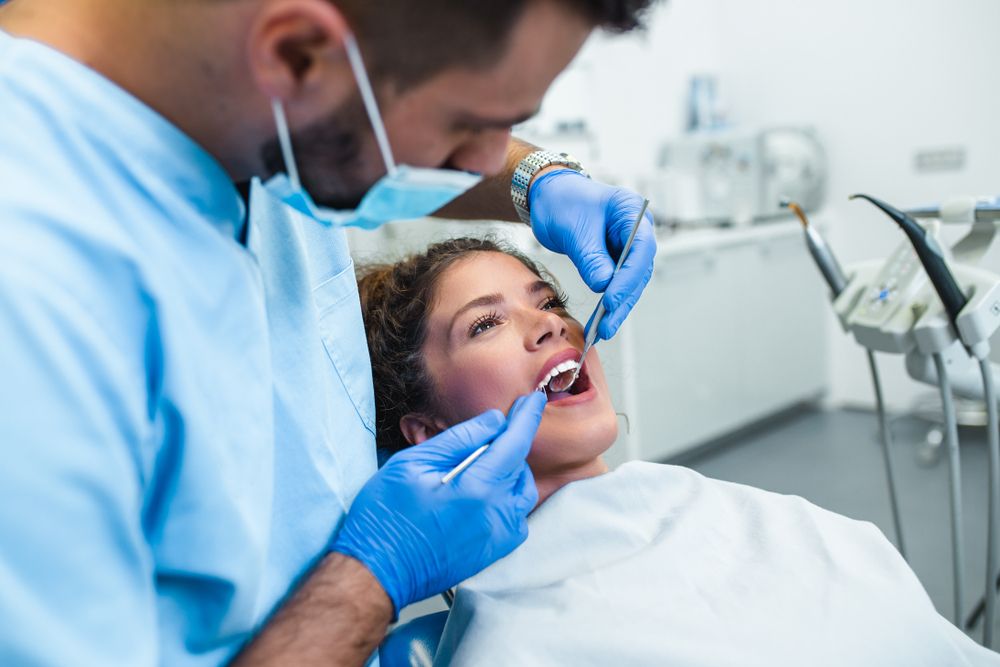Finding an Emergency Dentist Near Me Your Quick Guide to Dental Urgencies

Are you in excruciating pain and need immediate dental care? Finding an emergency dentist near me is crucial when dental urgencies strike. Whether it’s a severe toothache, a broken tooth, or a knocked-out tooth, prompt treatment is essential to alleviate discomfort and prevent further complications. This quick guide will help you navigate through the process of finding an emergency dentist when you need one the most.
In times of dental emergencies, you want to rely on a trusted professional who can provide the urgent care you require. From general dentists who offer emergency services to specialized emergency dentists, it’s important to know your options and choose the right practitioner for your specific needs. With their expertise and state-of-the-art equipment, emergency dentists are well-equipped to handle a wide range of dental urgencies.
Understanding Dental Emergencies
Dental emergencies can occur unexpectedly and can be extremely painful. Understanding what constitutes a pediatric emergency dentist near me is crucial to ensure you seek appropriate care promptly. While some dental issues may be considered urgent, others may not require immediate attention. Here are some common dental emergencies that warrant immediate treatment:
Severe Toothache
A severe toothache can be an indication of an underlying dental problem, such as an abscess or an infection. The pain may be throbbing, persistent, or worsen when you bite down. If you experience intense tooth pain that does not subside with over-the-counter pain relievers, it’s essential to seek emergency dental care.
Broken or Fractured Tooth
A broken or fractured tooth is a dental emergency that requires immediate attention. Whether it’s due to a fall, accident, or biting down on a hard object, a broken tooth can cause significant pain and sensitivity. It’s important to seek emergency dental care to assess the extent of the damage and prevent further complications.
Knocked-Out Tooth
If a tooth gets completely knocked out due to trauma, it’s crucial to act quickly. The chances of successfully re-implanting a knocked-out tooth are higher if you seek immediate emergency dental care. Rinse the tooth gently with water, being cautious not to touch the root, and try to place it back into the socket if possible. If that’s not feasible, store the tooth in a container of milk or saliva and head to the emergency dentist immediately.
Lost Filling or Crown
A lost filling or crown can be painful and leave the affected tooth vulnerable to further damage. If you lose a filling or crown, it’s important to seek emergency dental care to repair or replace the restoration promptly. Ignoring a lost filling or crown can lead to tooth sensitivity, decay, or even infections.
Dental Abscess
A dental abscess is a severe infection that forms around the root of a tooth or in the space between the teeth and gums. It can cause intense pain, swelling, fever, and even difficulty in swallowing. A dental abscess requires immediate attention from an emergency dentist to drain the abscess and prescribe antibiotics to prevent the infection from spreading.
Steps to Take During a Dental Emergency
Experiencing a dental emergency can be overwhelming, but taking the right steps can help alleviate pain and prevent further damage. Here are the steps to take during a dental emergency:
Assess the Situation
Start by assessing the severity of the dental emergency. If you’re in excruciating pain, experiencing excessive bleeding, or have a knocked-out tooth, it’s essential to seek immediate emergency dental care. On the other hand, if the issue can wait until regular office hours, you may consider scheduling an appointment with your regular dentist.
Rinse your Mouth
If you’re experiencing pain due to a lodged object or debris in your mouth, rinse your mouth gently with warm water. This can help dislodge any foreign particles and provide temporary relief. However, be cautious not to swallow any debris or accidentally cause further injury.
Control Bleeding
If you’re experiencing excessive bleeding due to a dental emergency, apply gentle pressure with a clean gauze or cloth to the affected area. This can help control the bleeding until you can seek professional dental care.
Preserve a Knocked-Out Tooth
If a tooth gets knocked out, it’s crucial to take immediate action to preserve it. Rinse the tooth gently with water, avoiding touching the root. If possible, try to reinsert the tooth into its socket. If that’s not feasible, place the tooth in a container of milk or saliva to keep it moist and head to the emergency dentist as soon as possible.
Use Over-the-Counter Pain Relievers
If you’re experiencing dental pain or discomfort, over-the-counter pain relievers such as ibuprofen can provide temporary relief until you can see an emergency dentist. However, it’s important not to exceed the recommended dosage and to seek professional care as soon as possible.
Finding an Emergency Dentist Near You
When a dental emergency strikes, finding an emergency dentist near you is vital. Here are some key considerations when looking for an emergency dentist:
Research Local Dentists
Start by researching local dentists who offer emergency dental services. Look for dentists who have positive reviews, extensive experience, and a reputation for providing prompt and reliable care during emergencies. You can check online directories, ask for recommendations from friends or family, or contact your regular dentist for referrals.
Check Availability and Hours
Dental emergencies can happen at any time, so it’s important to choose an emergency dentist who offers extended hours and weekend availability. Ensure that the dentist you choose can accommodate your needs promptly, even during evenings or holidays.
Verify Emergency Services Offered
Not all dentists provide emergency services, so it’s crucial to verify that the dentist you choose is equipped to handle dental emergencies. Some general dentists offer emergency care, while others may have specialized training in emergency dentistry. Consider your specific needs and choose a dentist who can provide the necessary care.
Inquire about Insurance and Payment Options
Before visiting an emergency dentist, inquire about their accepted insurance plans and payment options. It’s important to understand the financial aspects of emergency dental care to avoid any surprises. If you don’t have dental insurance, ask if the dentist offers any financing options or payment plans.
Consider Distance and Accessibility
During a dental emergency, you want to reach the dentist as quickly as possible. Consider the distance between your location and the emergency dentist’s office. Additionally, ensure that the dental office is easily accessible and has ample parking facilities.
What to Expect During an Emergency Dental Visit
Visiting an emergency dentist can be nerve-wracking, especially during a dental emergency. However, knowing what to expect can help alleviate anxiety and ensure a smoother experience. Here’s what you can expect during an emergency dental visit:
Evaluation and Assessment
Upon arrival at the emergency dentist’s office, you will undergo an initial evaluation and assessment. The dentist will examine your oral condition, review your dental history, and discuss the details of your dental emergency. X-rays or other diagnostic tests may be performed to determine the extent of the issue.
Treatment Planning
After assessing your dental emergency, the dentist will develop a treatment plan tailored to your specific needs. They will discuss the available treatment options, associated costs, and potential outcomes. It’s important to ask any questions or express any concerns you may have during this stage.
Immediate Pain Relief
If you’re in pain, the emergency dentist will prioritize providing immediate pain relief. They may administer local anesthesia or prescribe pain medication to alleviate your discomfort. The dentist will ensure you’re comfortable before proceeding with any necessary treatments.
Emergency Dental Procedures
Depending on the nature of your dental emergency, the dentist may perform various procedures to address the issue. This can include tooth extraction, root canal therapy, dental restoration, or any other necessary treatments to alleviate pain and restore oral health.
Post-Treatment Care
After the emergency dental procedures, the dentist will provide instructions for post-treatment care. This may include guidelines for oral hygiene, dietary restrictions, and any necessary follow-up appointments. It’s essential to follow these instructions diligently to ensure proper healing and prevent further complications.
Tips for Managing Dental Pain at Home
While waiting to see an emergency dentist, managing dental pain at home can provide temporary relief. Here are some tips for managing dental pain until you can receive professional care:
Saltwater Rinse
Mix half a teaspoon of salt in eight ounces of warm water and rinse your mouth gently with the solution. Saltwater rinses can help reduce inflammation, alleviate pain, and promote healing in the affected area.
Cold Compress
Apply a cold compress, such as an ice pack wrapped in a cloth, to the outside of your cheek near the affected area. This can help reduce swelling and numb the area, providing temporary relief from dental pain.
Over-the-Counter Pain Relievers
Over-the-counter pain relievers, such as ibuprofen or acetaminophen, can provide temporary relief from dental pain. Follow the recommended dosage instructions and consult with a healthcare professional if you have any underlying medical conditions or if the pain persists.
Avoid Trigger Foods and Drinks
Certain foods and drinks, such as hot or cold beverages, sugary foods, or acidic substances, can exacerbate dental pain. Avoiding these trigger foods and drinks can help minimize discomfort until you can see an emergency dentist.
Maintain Good Oral Hygiene
Even during a dental emergency, it’s crucial to maintain good oral hygiene. Gently brush your teeth using a soft-bristled toothbrush and fluoride toothpaste. Be cautious around the affected area and avoid aggravating the issue further.
When dental emergencies strike, finding an emergency dentist near you is essential for prompt and effective care. Understanding dental emergencies, taking appropriate steps during a dental emergency, and knowing how to find an emergency dentist can help you navigate through these urgent situations. Remember to maintain optimal oral health through regular dental check-ups, practicing good oral hygiene, and addressing any dental issues promptly to minimize the chances of encountering dental emergencies.


